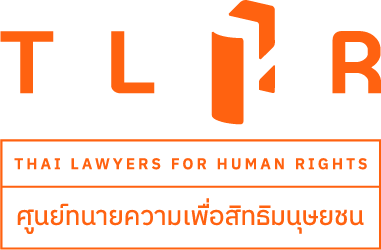Thai Lawyers for Human Rights
Thailand
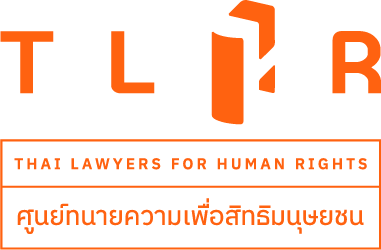
Conflict and adversity often serve as catalysts for the emergence of powerful movements and organizations. Initially an ad-hoc initiative formed by a group of lawyers following the coup of May 22, 2014, Thai Lawyers for Human Rights (TLHR) has steadfastly dedicated itself to the protection of individuals whose civil and political rights have been violated. TLHR’s mission encompasses providing legal representation to victims of rights violations, documenting the stories of these violations, educating the public on civil rights, and amplifying concerns about Thailand’s human rights situation to the world.
m-block-quote m-block-quote–with-author “>
“When law is the state’s weapon of choice, lawyers must stand their ground, face this act of aggression, and safeguard the rule of law and democracy.”
Sirikan Charoensiri, Co-Founder and Deputy Director of TLHR
TLHR was intended to provide legal assistance to those summoned, arrested, or detained by the military regime. It has since evolved into one of the country’s foremost legal support systems against human rights violations, most notably defending prosecutions of lèse-majesté (royal defamation) cases which have escalated since the youth-led protests of 2020 which openly called for monarchy reforms. These protests have resulted in over 1,930 people, including 286 minors and youths, being charged under various laws for exercising their freedom of expression. At least 259 individuals have been charged with lèse-majesté under Section 112 of the Criminal Code. Lèse-majesté cases carry a severe prison term of three to fifteen years, an incarceration period comparable with the offense of involuntary manslaughter.
“Since 2020, almost 300 children have been charged under various repressive laws for their fight to secure a better future. Our youngest client was just twelve years old when he was arrested at a protest, merely because he cycled from his home to observe it,” said Charoensiri.
According to TLHR, the challenges faced by Human Rights Defenders (HRDs), especially artists and cultural rights defenders in Thailand, are numerous and severe. Artists must tread cautiously when creating works that may be interpreted explicitly or implicitly as criticizing the monarchy or the military-backed government. Cultural rights defenders face being charged under Section 112 for exercising their right to freedom of expression. Since the “Free Youth” protest on July 18, 2020, 1,930 HRDs have been politically prosecuted in 1,253 cases.
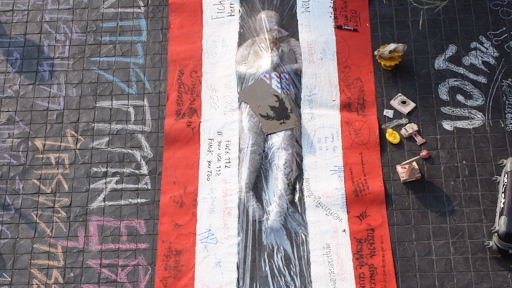
TLHR has worked on numerous landmark cases, some of which involve artists and cultural practitioners. Musician Port Faiyen from the band Faiyen, was arrested and sentenced to 9 years for three Facebook posts from 2016, allegedly violating Section 112 and the Computer Crimes Act. While his bandmates fled to France, Port remained in Thailand due to a critical medical condition. Since August 15, 2022, Port has been released on bail set at 300,000 baht while awaiting appeal on the grounds that he will not flee the country.
Another ongoing case is that of Ten and Ramil, art students at Chiang Mai University who were sentenced to three years and six months for displaying artwork resembling the Thai national flag without the blue color. The absence of blue was seen as an insult to the monarchy. However, given that their graduation was approaching and neither had been imprisoned before, the sentence was suspended and both artists were given a probation sentence of two years with an accompanying fine of 1,500 baht each.
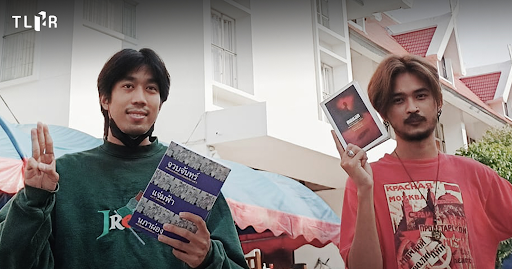
“I heard in many European countries, there is a law, lèse-majesté, but it’s not enforced. It’s there but if you don’t use it, it’s semi-effective. But for us, it’s ready to be used to crush people who think differently, or people who express themselves incorrectly according to the meaning given by the state,” Ten said in an interview with TLHR.
The most recent notable case is of an independent artist known as Bung-Urn. In March 2022, Thai police conducted a home raid on Bung-Urn without presenting an arrest warrant, issuing a summons, or informing him of his rights. They alleged that his art violated Section 112. While in police custody, Bung-Urn’s phone was confiscated, and he was “instructed” to delete more than ten of his digital art pieces from his Facebook account. Moreover, he was warned against creating artwork that alluded to the monarchy in the future.
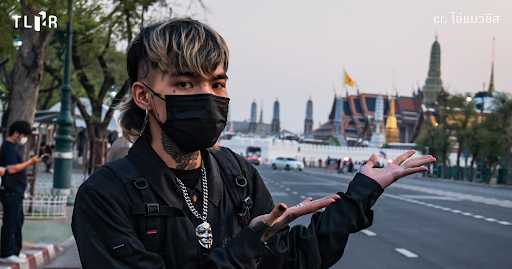
“Even if the government tries to delete [my work], people will see it, keep it, and share it, indicating that they cannot stop the wheel of time. My work has already been published. Ideas cannot be stopped,” Bung Urn said.
Bung-Urn was arrested earlier this year on March 28, 2023 for spray painting messages on the Grand Palace, and again in April 2023 in connection with his March 2022 Facebook post on charges under Section 112 and the Computer Crimes Act. Bung-Urn was later released on a cash bail of 90,000 baht.
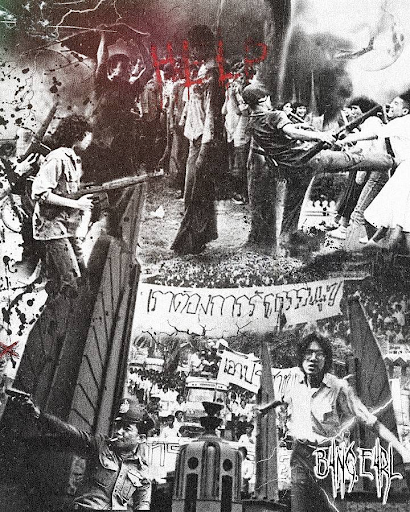
TLHR continues to work tirelessly to protect and expand civic space and free dialogue in Thailand, with the hope of benefiting everyone, including artists and cultural rights defenders. TLHR’s work intends to empower people to express themselves freely, question the status quo and engage in critical conversations around Thailand’s socio-political and economic institutions, without fear of persecution – all essential elements for any healthy democracy.
There are several ways to support TLHR’s activities. Donations can be made to fund the lawyers representing individuals charged under Section 112, particularly artists exercising their freedom of expression. Follow TLHR on social media platforms such as Instagram, Twitter, Facebook, LinkedIn and TikTok to stay updated on their work and spread awareness of the threats to freedom of expression in Thailand. By amplifying TLHR’s work and supporting their initiatives, we can contribute to the ongoing fight for freedom of expression and artistic creativity in Thailand.
By Manojna Yeluri, November 21, 2023. Manojna is ARC’s Asia Regional Representative and is a lawyer specializing in artist rights, entertainment, and intellectual property rights.






